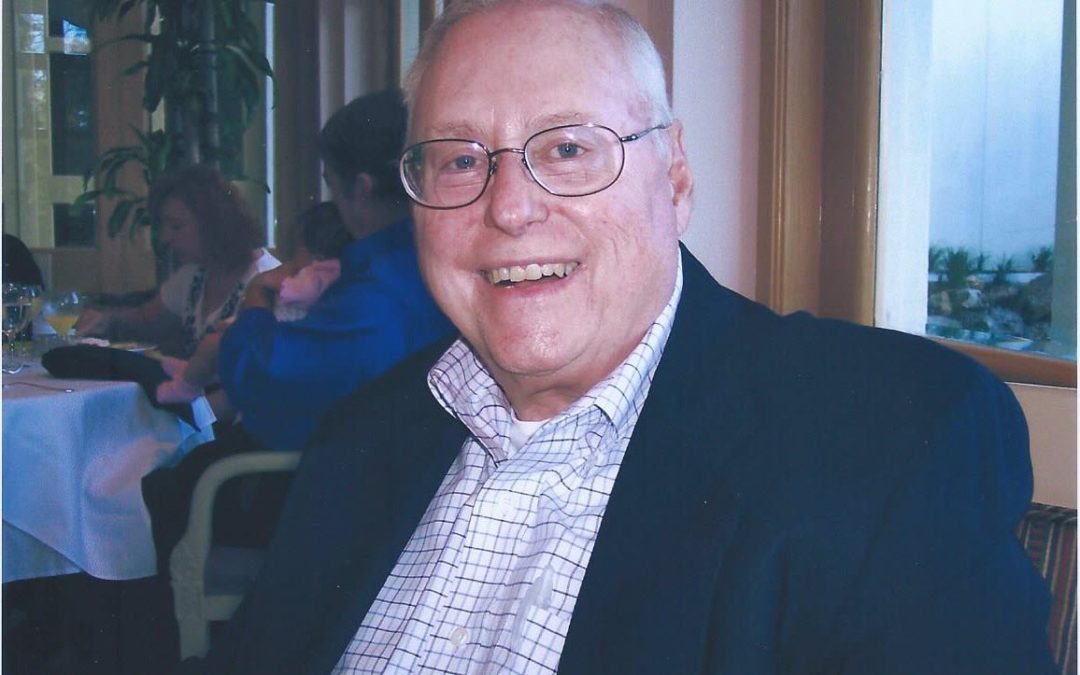by Dan | Mar 14, 2020 | Uncategorized
Dear FAV Advocates,
In the spirit of supporting public health policy to slow the spread of COVID-19 (Coronavirus), FAV will not host public gatherings until May 1st of this year. Prior to that date, we will reassess to determine if further cancellations are required. We have exciting programming planned for the month of May, however we will prioritize your health and support societal efforts to control the transmission of the virus and not overwhelm our healthcare system.
In the meantime, FAV will leverage our virtual capabilities for Coffee Talk programming and Delegate VTCs. Please see the schedule below and consider joining us for a virtual coffee talk on how faith communities are responding to the Coronavirus. Now is a time to reassure each other and look out for our neighbors.
Yours in service,
Steve & The FAV Team
In the News
‘American Dirt’: Kicking up dust in the book industry. This expose explores thought policing going on in the book industry. (Christian Science Monitor)
read more
The Amish use tech differently than you think. Maybe we should emulate them. (An op-ed from the Washington Post)
read more
Upcoming Events
TBD March – Virtual Coffee Talk, “Coronavirus & Faith Communities,” Free to all members
16 April – Delegate Videoconference, Coffee Talks & Difficult Conversations
30 April – Virtual Coffee Talk, “FAV Programming Update,” Free to all members
7/8 May – coffee talks “Media Bias” in North Carolina w/ PEN America (Tentative)
11 May – coffee talk “Digital Detox” at Value UMC, Oakton, VA
12 May – Coffee Talk “Media Bias”, Freedom Museum, Manassas, VA
12 May – Dr. Cornell West at Museum of the Bible, DC
30 July – Delegate Videoconference, Symposium 2020
24 September – coffee talk “Media Bias” in Newtown, PA
25-26 September – National Symposium “First Amendment & Civic Engagement”, National Constitution Center, Philadelphia
Partner Spotlight
Apply for the 2020 Sacred Sector Fellowship! Deadline to apply: March 15th
Seminarians are increasingly entering into faith-based nonprofit leadership roles, but often need a better understanding of how public policy and cultural trends affect the faith-based sector. The Sacred Sector Fellowship offered in Summer 2020 by the Center for Public Justice is a unique learning cohort that helps you discern your vocational calling and equips you for service within the sacred sector.
As as a Sacred Sector Fellow you will:
- Receive a $,5000 stipend
- Experience a 1-week educational intensive with Sacred Sector staff
- Experience 9 weeks of field experience at a faith-based organization
APPLY HERE

by Dan | Mar 11, 2020 | Uncategorized

On May 31, 2017, President Trump tweeted “Despite the constant negative press covfefe” shortly before deleting it. The misspelling later became the inspiration behind the Communications Over Various Feeds Electronically for Engagement Act, also known as the COVFEFE Act of 2017. It was introduced to the House of Representatives on June 12 and although it has not yet passed, the COVFEFE Act has significant implications for First Amendment rights and publicly-elected officials’ use of social media.
Let’s unpack exactly what the COVFEFE Act was trying to do and explore how it remains a pressing First Amendment issue in 2020 and beyond.
Communications Over Various Feeds Electronically for Engagement Act
The COVFEFE Act sought to revise the Presidential Records Act to require the National Archives to preserve presidential tweets and other social media interactions. Introduced by Illinois Representative Mike Quigley, the bill was designed to prevent current and future U.S. presidents from deleting social media posts (on official channels like @POTUS and personal channels like @realDonaldTrump).
As former White House Press Secretary Sean Spicer said, President Trump’s tweets ought to be “considered official statements by the President of the United States.” With this in mind, the creators of the COVFEFE Act argued that social media posts ought to be preserved by the National Archives (even if the posts were eventually deleted), per the requirements outlined in the Presidential Records Act.
Is Social Media Legally Classified as a Public Forum?
There are serious First Amendment implications surrounding the COVFEFE Act, including the recent lawsuit, Knight First Amendment Institute v. Trump, in which the plaintiffs successfully argued that the “public forum” nature of social media meant that President Trump blocking users constituted a violation of their First Amendment rights.
In the first legal decision, Judge Naomi Buchwald stated, “This case requires us to consider whether a public official may, consistent with the First Amendment, “block” a person from his Twitter account in response to the political views that person has expressed, and whether the analysis differs because that public official is the President of the United States. The answer to both questions is no.”
The Second Circuit upheld the lower court’s decision in July 2019, which led to new lawsuits against other elected public officials, such as Representative Alexandria Ocasio-Cortez, who had blocked some people from viewing her Twitter account at the time.
Although the COVFEFE Act is still just a proposed piece of legislation, it seems important that all citizens – regardless of their political beliefs or affiliations – ought to be able to view every public official’s social media posts. The “public forum” nature of social media is still under consideration in countless legal battles across the country, and regardless of political party or level of public office, our elected officials have a Constitutional obligation to remain transparent in their interactions with the public, even when they would rather block someone who disagrees with them.

by Dan | Mar 11, 2020 | Uncategorized
FAV is excited to present a new honor, the Edward D. Lowry Memorial Award for Citizenship, during the National Symposium in September. Steve Miska, Executive Director of First Amendment Voice, acknowledged, “We wanted to honor Ed Lowry’s life and legacy by recognizing outstanding civic engagement and encouraging citizens to serve others and engage on issues of importance in their communities. He created bonds throughout the community and across ideological divides.”
Edward Diller Lowry (1944-2019) exemplified civic virtue during a lifetime of service; a dedicated husband, father, citizen and patriot. At age seventeen, Ed was in an automobile accident that resulted in the loss of his dominant hand. With a lot of hard work, he taught himself how to function and handle everyday “ins and outs” using his left hand. Although hard for a young man, he had the courage to live life, despite setbacks and never let his injury limit him. During his professional life, he served for decades in the telecommunications industry, conducting governmental coordination and receiving. When Ed retired at the end of 2000, he was Executive Director of Federal Regulatory Policy and Planning for Verizon Communications. In that capacity he helped shape the law and government regulation as technology changed freedom of expression. He also served as a member of the Michigan State Public Utilities and on the advisory boards of KMB Video and the International Engineering Consortium. In 2017 the Vienna Mayor and Shepherd’s Center recognized him as Volunteer of the Year.
In retirement, Ed never learned to slow his pace or service to others. Within his church (which he attended for 37 years) he chaired numerous committees and started many initiatives that have forever changed his community. Ed was never afraid to talk to anyone he encountered and relentlessly sought out partnerships with local business and agencies in order to serve others. Due to his drive and passion, many of these initiates not only blossomed, but thrived.
In addition to endless hours leading at his church, Ed served on the Board of Directors for the Shepherd’s Center of Oakton-Vienna. At the Shepherd’s Center, he was active on the fundraising committee, drove seniors without transportation to doctor’s appointments, volunteered for the friendly visitors program, and was Co-Chair of the congregational advisory committee. Ed also joined First Amendment Voice as a strategic advisor. He quickly became involved in the strategic planning process and facilitated outreach and partnership engagement, connecting key partners to the FAV movement.
Ed gave advice with collegial candor and exhibited the moral courage to challenge assumptions and choose the harder right over the easier wrong. His ability to work across ideological differences united people in common purpose. He was passionate that every person has the ability to give back in some capacity, and he lived this out through volunteerism. Ed believed that playing an active role in any organization could come through monetary donations, willingness to ask for sponsorships, or service. He
recognized the importance and value of donating time. Ed had a way of encouraging others to contribute their time, talent or resources, and sometimes could be described as relentless in this pursuit. In the wake of his death, many of the people in organizations he impacted have commented that it will take 10-15 people to carrying on his legacy.
FAV is convening a nominating and selection committee to shepherd the process of identifying upstanding citizens engaged in service to community. FAV will announce the recipient in advance of the National Symposium and design an award that symbolizes Ed’s life of service and inspires others to rise to that level of civic engagement. This year FAV will host its National Symposium in Philadelphia at the National Constitution Center from September 25-26th.
If you would like more information about FAV’s plans to honor Ed’s legacy through the Edward D. Lowry Memorial Award for Citizenship, please contact Diane DuBois at (202) 215-5341 [email protected] or Heather Miska at [email protected]

by Dan | Feb 26, 2020 | Uncategorized

A number of new studies show that Americans aren’t very good at spotting fake news. Are you?
Many fake news sites spoof credible ones, using a similar URL and logo. For example, ABC News could appear as abc-news.com with a similar logo, to trick people into believing they are reading credible news. Also, look at the website’s “Contact” and “About Us” pages. If there’s no editorial contact or the description of their purpose and mission is vague or missing altogether, that could be a sign that the site was created solely to shape public perception with misleading or false stories. Do a quick Google search of the website. Is there a history of bad press about the source? Some sites have been outed as venues for foreign governments to intervene in our elections.
Does the article have a byline? If so, does the author have a track record of quality content? Did the writer interview reputable sources and include direct quotes and links to supporting information? Is the writing clean or is it full of errors? All of this matters, because legitimate journalists conduct themselves in a legitimate manner, while trolls aren’t concerned with following journalistic standards and practices.
If you’re on the fence about the credibility of a source, do some research. Are other outlets reporting on the same matter? Do you see recurring themes as far as the facts being reported? People or organizations with malicious intentions will create their own narrative and it’s usually not supported by other accounts.
Does the website have a lot of pop-up and banner ads? Many misleading sites have a lot of those. Other sites feature shocking headlines but the text of the stories don’t support the outlandish claim(s) being made. Does the story seem a bit far-fetched? Does it align with your beliefs and make you angry? Many fake news stores are written specifically to invoke anger. Be aware of confirmation bias. That’s the tendency to put more stock in information that confirms your beliefs than information that doesn’t.

by Dan | Feb 12, 2020 | Uncategorized
As of May 31, 2019, the U.S. State Department began requesting social media information from visa applicants. The new practice arose from President Trump’s 2017 Memorandum on Implementing Heightened Screening and Vetting of Applications for Visas and other Immigration Benefits. By early December 2019, two organizations (Knight First Amendment Institute and the Brennan Center for Justice) sued to put an end to this policy on the basis that it allegedly violates the First Amendment rights of visa applicants.
The controversy surrounding the social media identification requirement has sparked a great deal of discussion about freedom of speech online and the extent to which the federal government should be able to monitor and even regulate freedom of speech, not just for American citizens in online forums but also for non-citizens seeking U.S. visas.
In other words, visa applicants are not U.S. citizens, but should they still granted the same First Amendment freedoms as if they are? And what are the possible consequences of social media identification requirements for people seeking visas?
To uncover why the State Department’s new practice may be unconstitutional on First Amendment grounds, let’s first examine whether non-citizens are legally granted the same Constitutional rights and what implications this practice may have if it continues.
Visa Applicants and the First Amendment
Although the Constitution was primarily written to protect the rights of American citizens, many of the amendments are intended to cover non-citizens as well, say some Constitutional scholars. They argue that the Bill of Rights was intended to protect citizens and non-citizens alike because the Constitution doesn’t ever say these rights are limited to “citizens;” the Constitution simply says “the people.”
Michael Kagan, Associate Professor of Law at the University of Nevada – Las Vegas, has written extensively about non-citizens’ relationship with the First Amendment, particularly when it involves freedom of speech and freedom of religion. As he wrote in an essay for the Boston College Law Review in 2018:
Speaker identity changes speech in powerful ways, which is why it is dangerous to allow the government to silence certain speakers based on who they are. The Court should recognize that immigrant speech is important enough to be protected by the First Amendment, both for immigrants in the United States and for American citizens who may benefit from hearing what they have to say.
In sum, immigrants and temporary visa holders should maintain the same First Amendment protections as U.S. citizens because denying them said rights would be discriminating against these groups on the basis of identity (non-citizen) and silencing these groups could be enormously detrimental for American society as a whole.
Freedom of Speech Online
The broader question here involves freedom of speech online: why do social media accounts matter in this case? The original purpose of President Trump’s new State Department practice was likely intended as a means for protecting our national security. After all, terrorists commonly use social media as tools for recruitment and propaganda dissemination, which is why asking visa applicants to identify their social media profiles seemingly makes sense at first.
However, this policy can produce a sort of chilling effect on free speech, in which visa applicants no longer share their ideas, opinions and attitudes online in fear of getting denied a visa to the U.S.
For instance, the lawsuit filed by the Knight First Amendment Institute and the Brennan Center for Justice was sparked by the Doc Society and the International Documentary Association’s concerns about filmmakers from around the world being able to express themselves freely, even if their ideas are unpopular. Without access to a U.S. visa, some filmmakers may not be able to continue their investigative reporting and critical documentary work because many filmmakers are reliant on U.S. events to obtain support and resources for their projects.
Beyond filmmakers, it’s simply untenable to require all visa applicants to reveal each and every one of their social media profiles. In some cases, an individual may use a pseudonym to avoid harassment or other serious threats; in other cases, the visa applicant may have expressed an opinion deemed unpopular and/or unsupportive of the current (or future) presidential administration, which could trigger a denial of their visa application.
We don’t know how far-reaching this law may be, which is why we must support the First Amendment for everyone protected under the Constitution, particularly in online environments that are increasingly subject to governmental regulation, such as social media.









